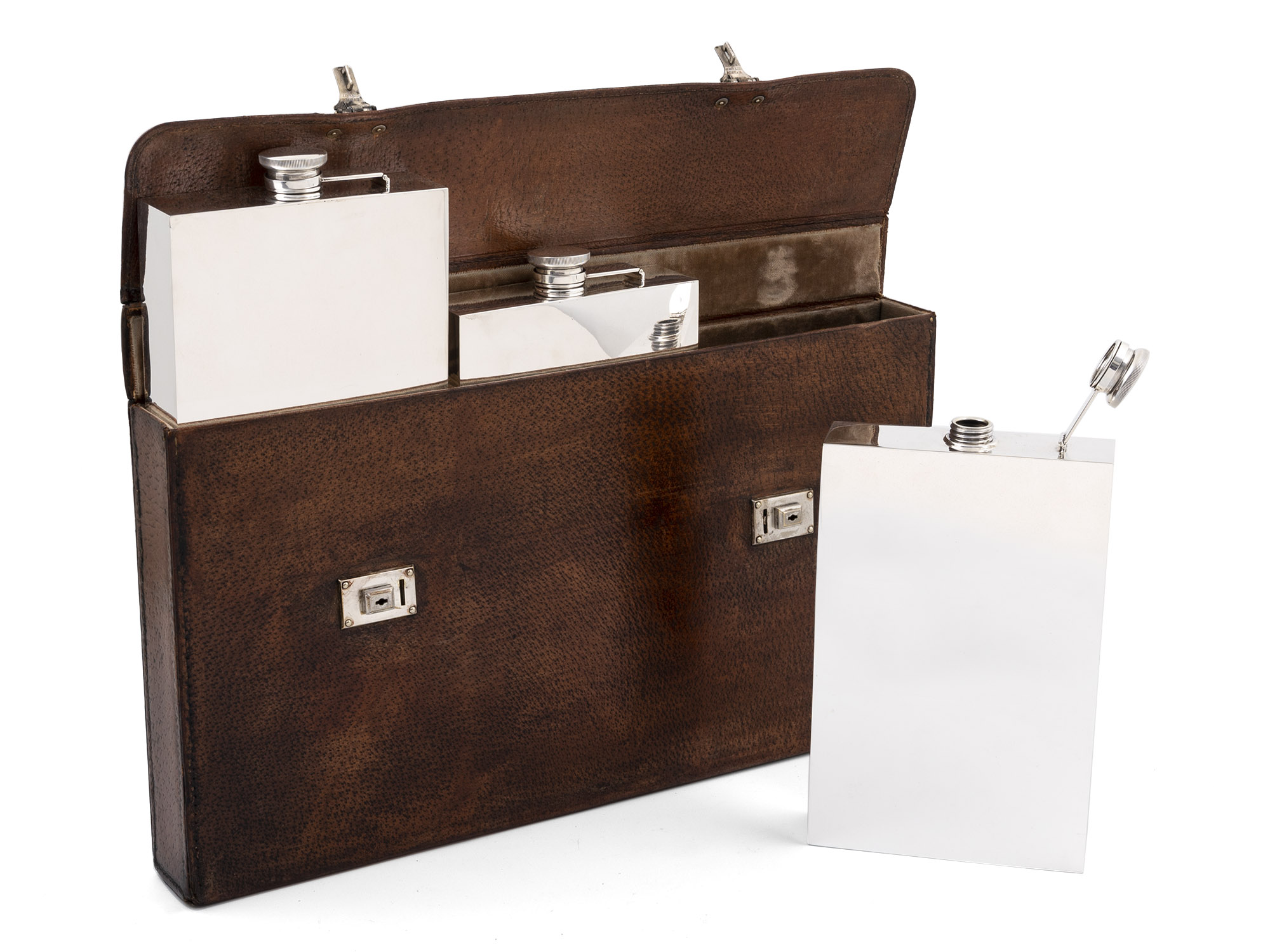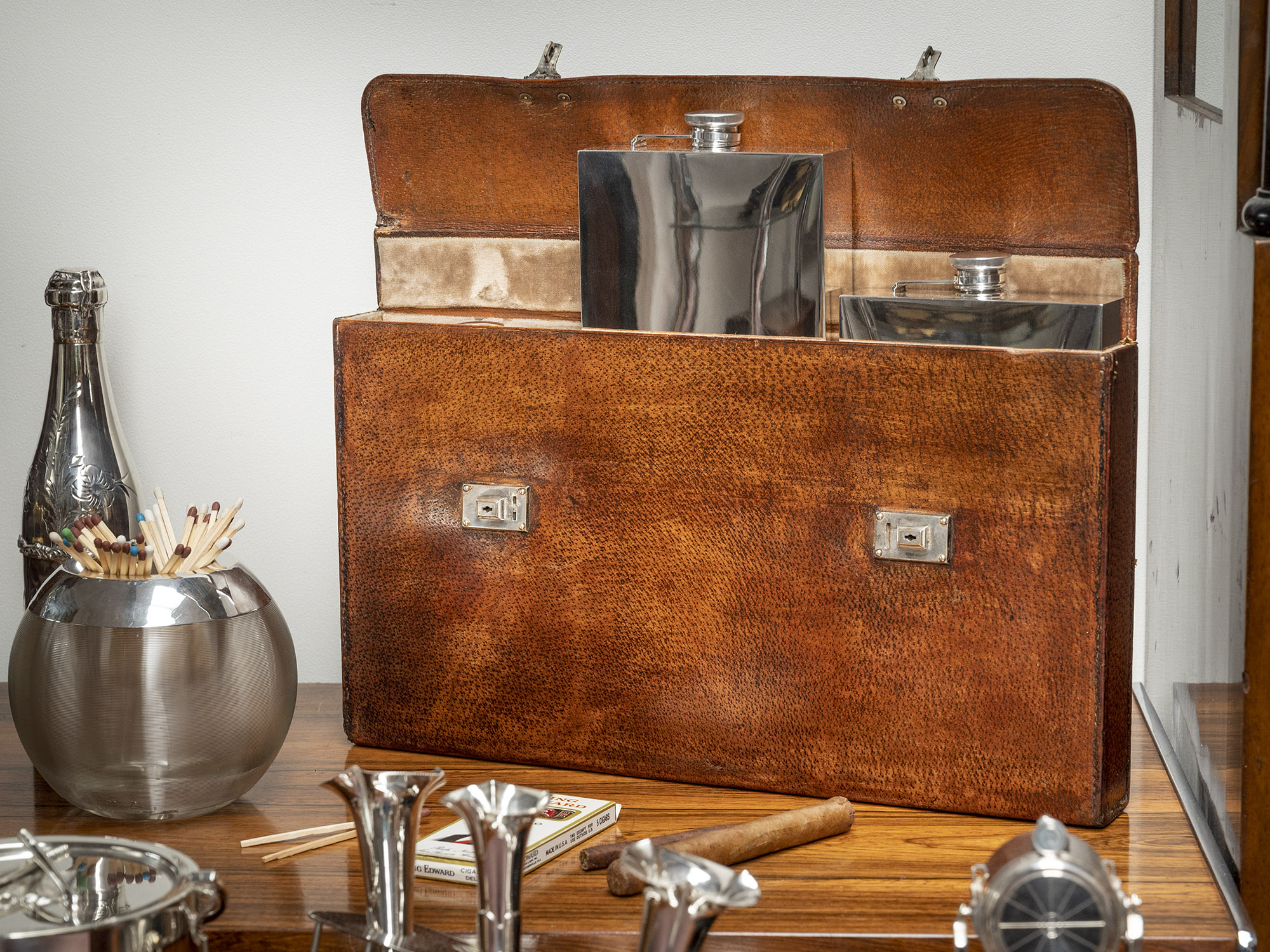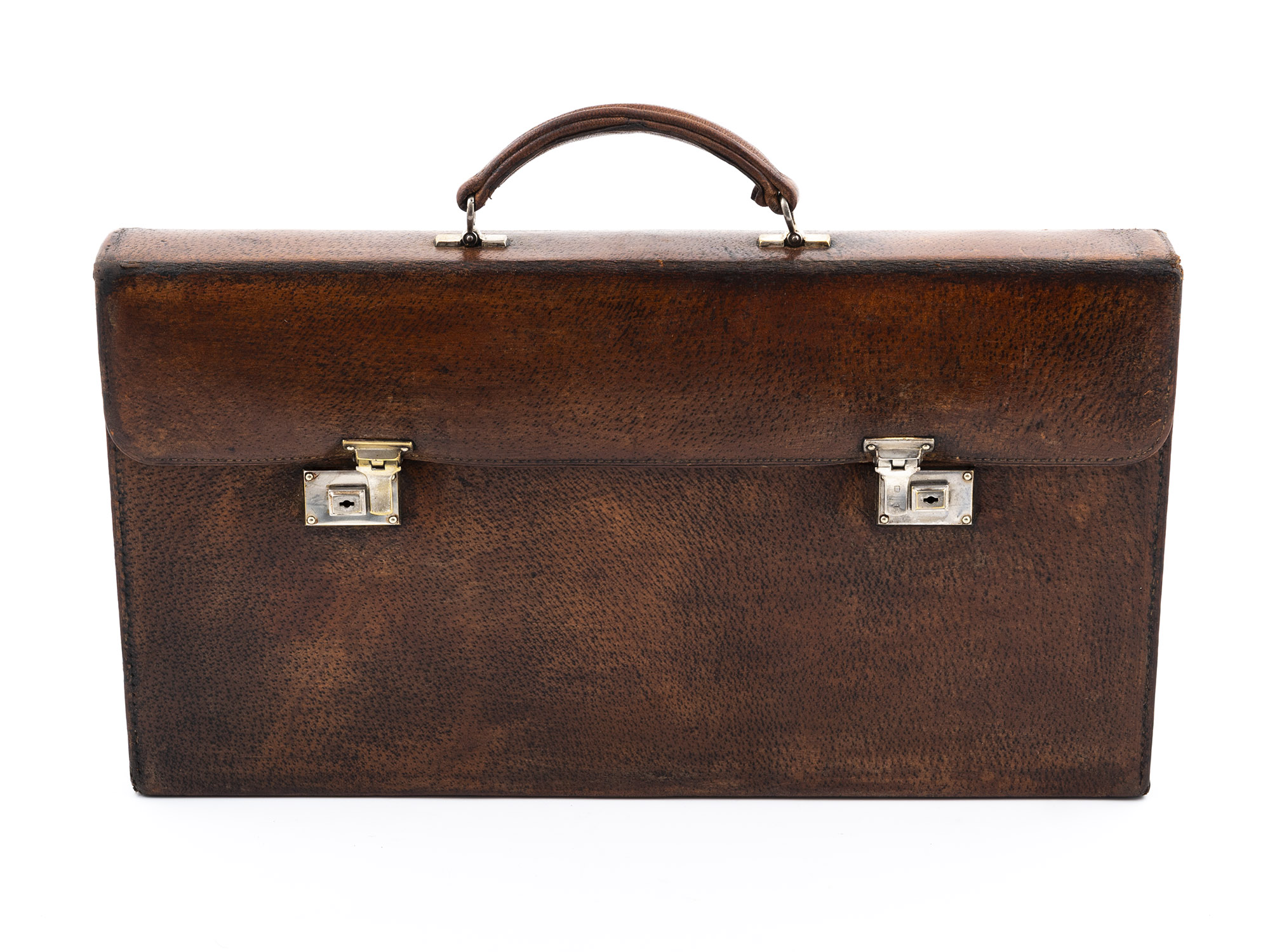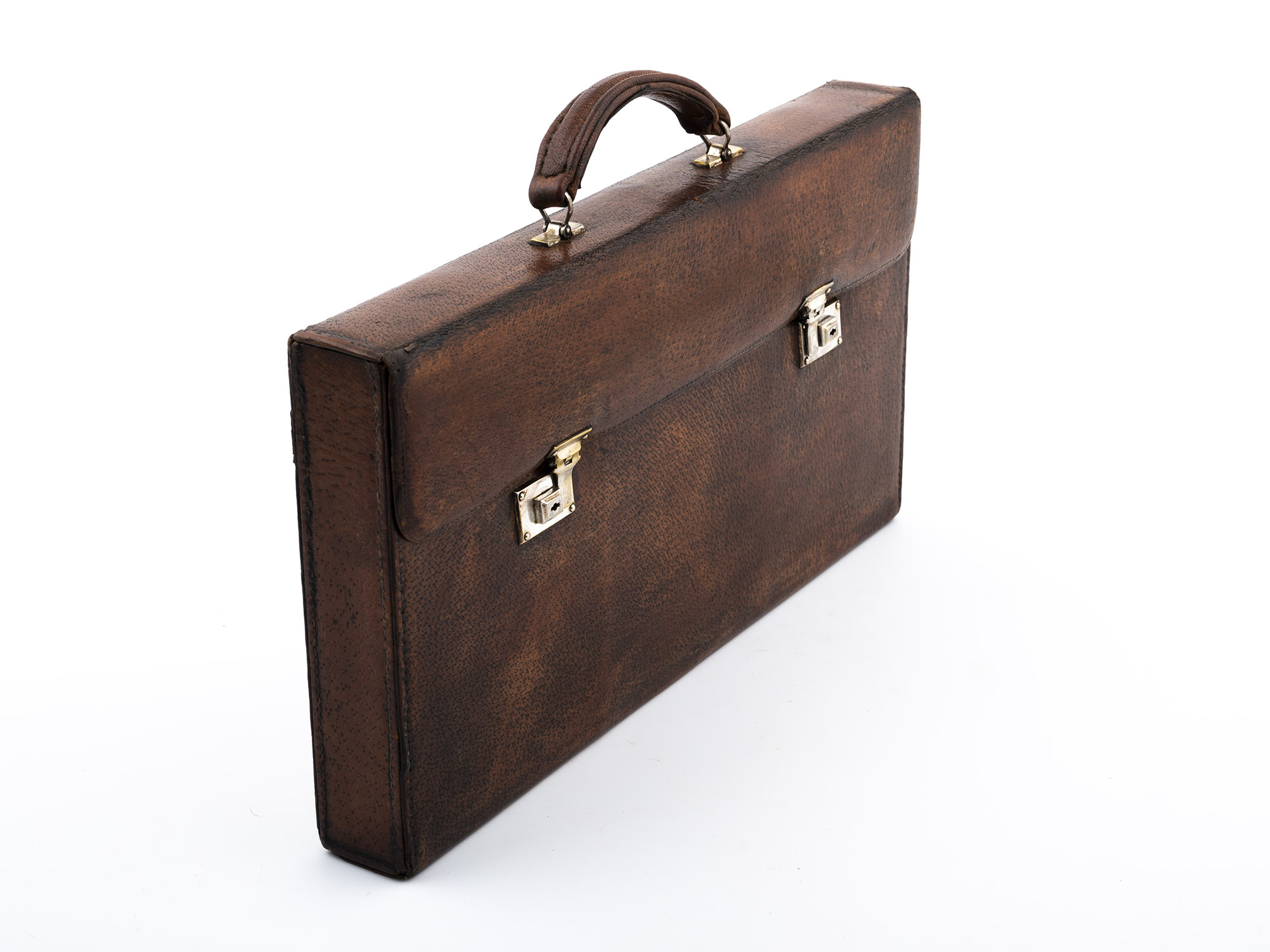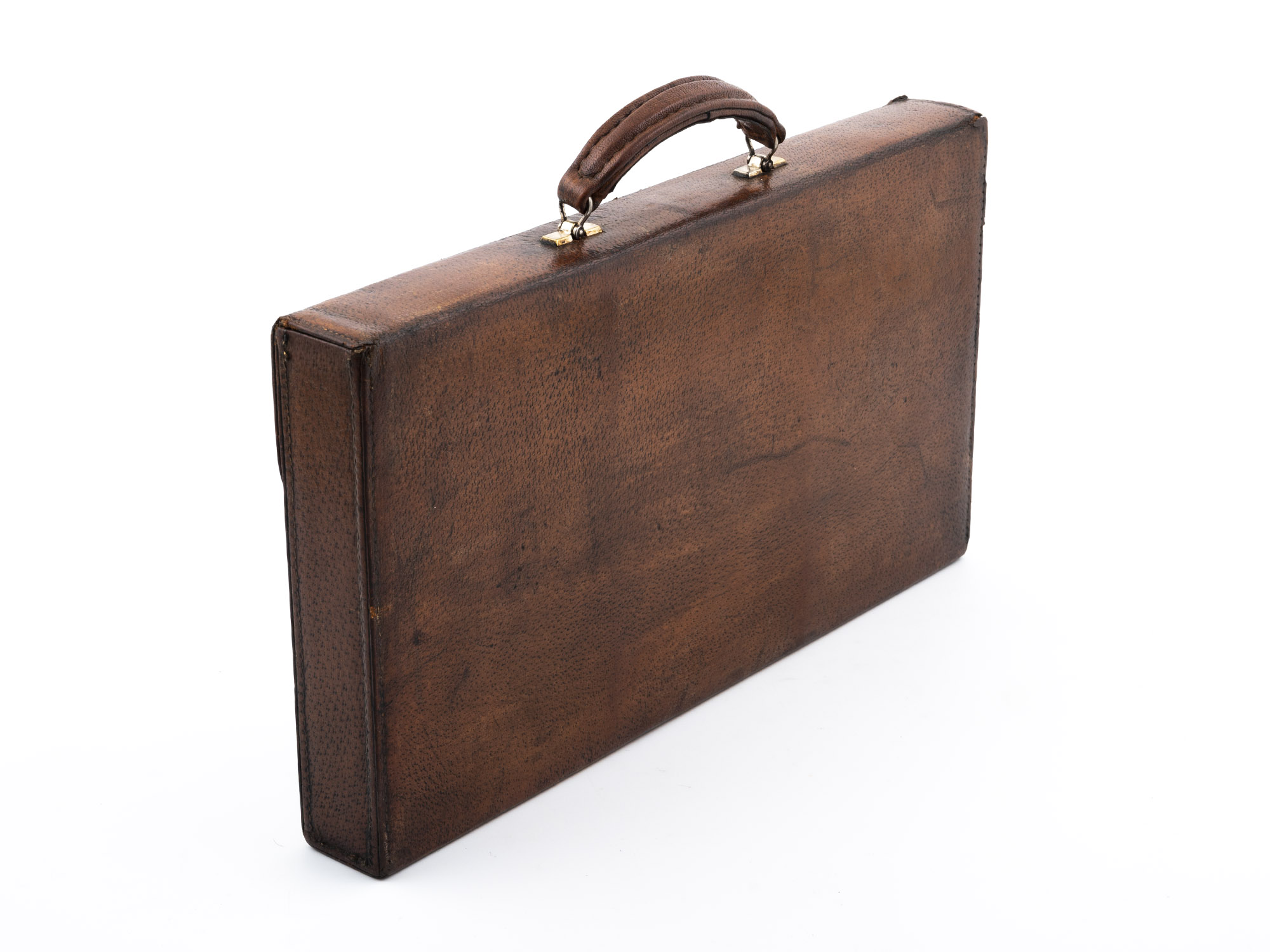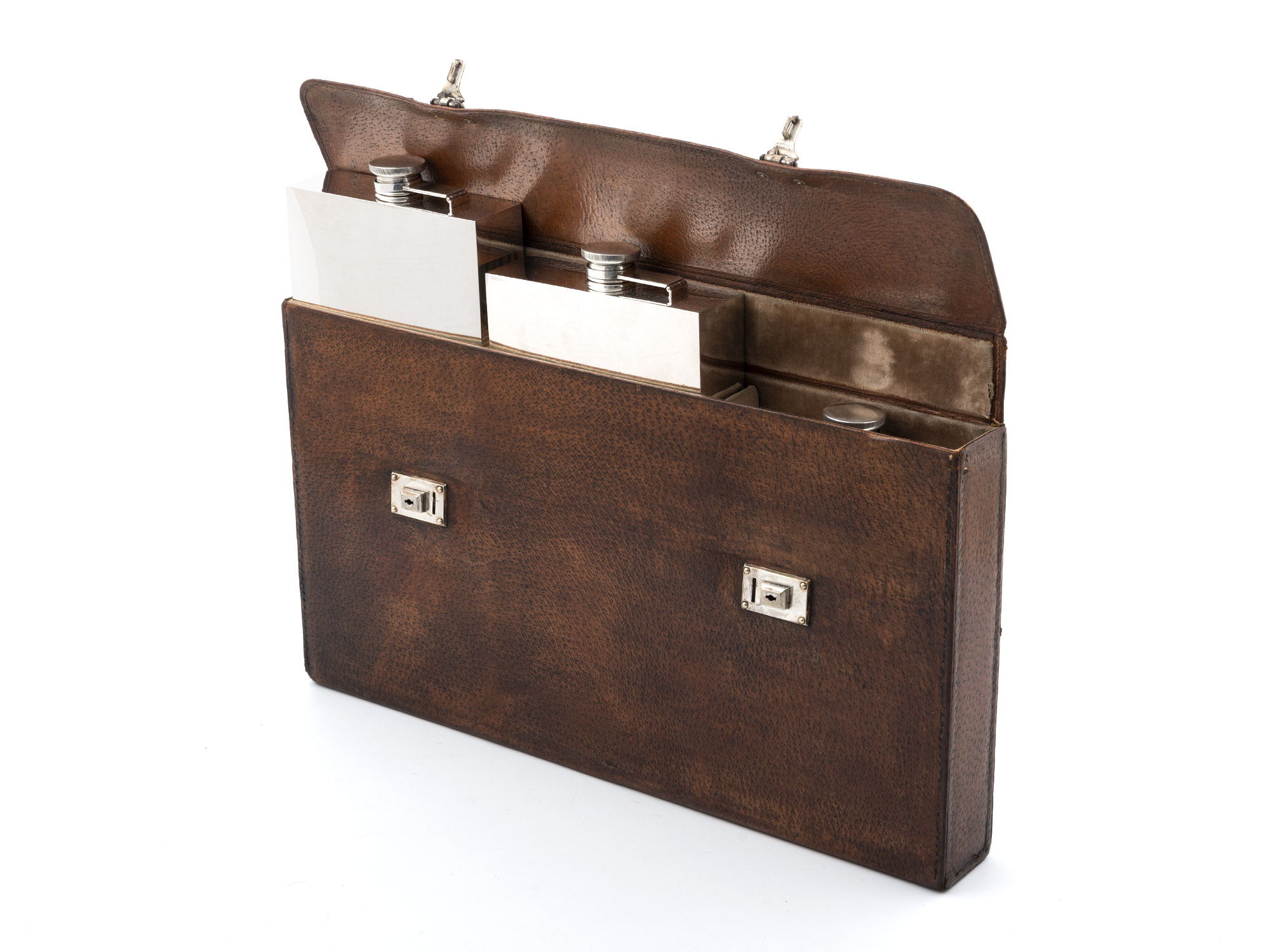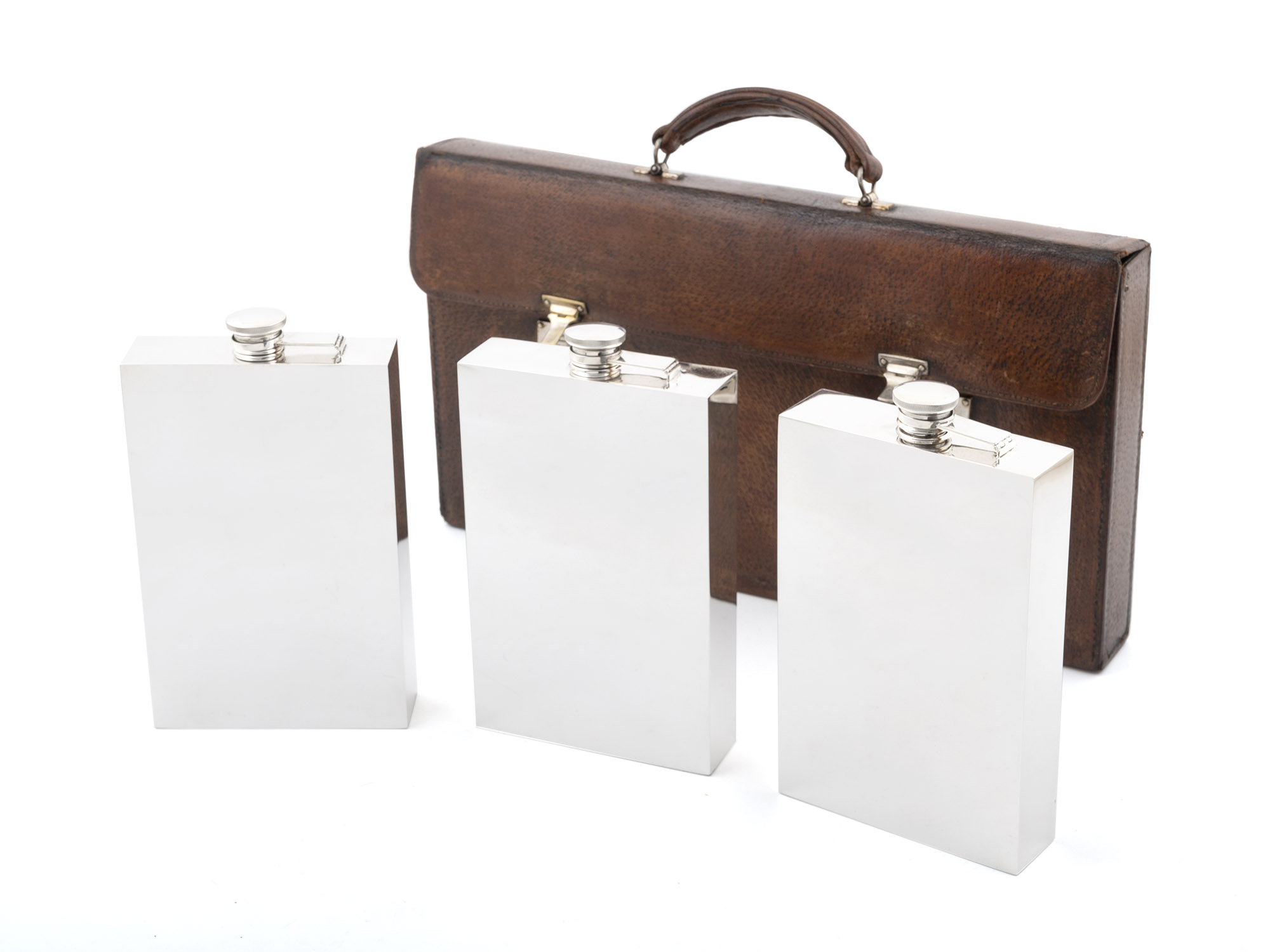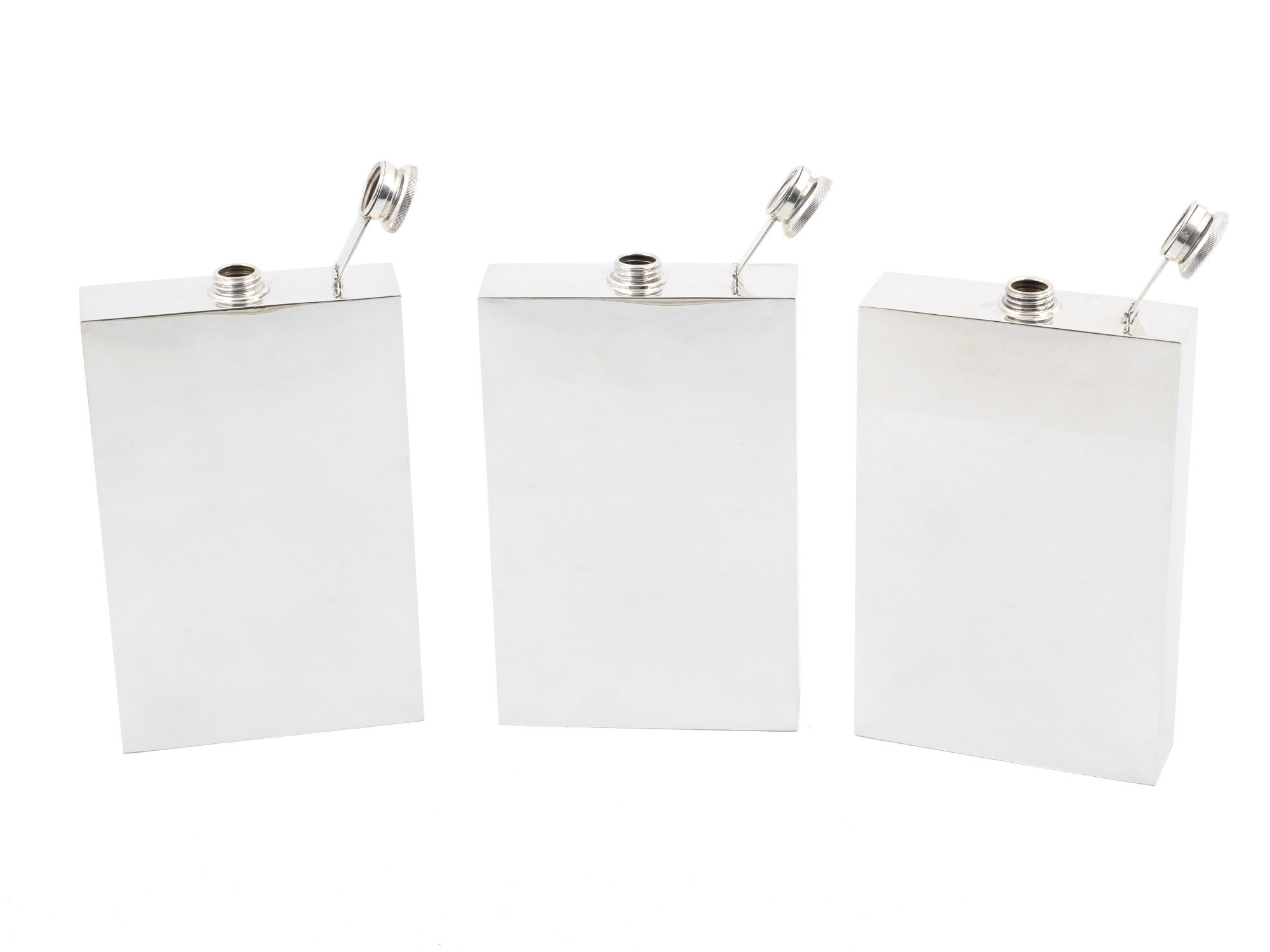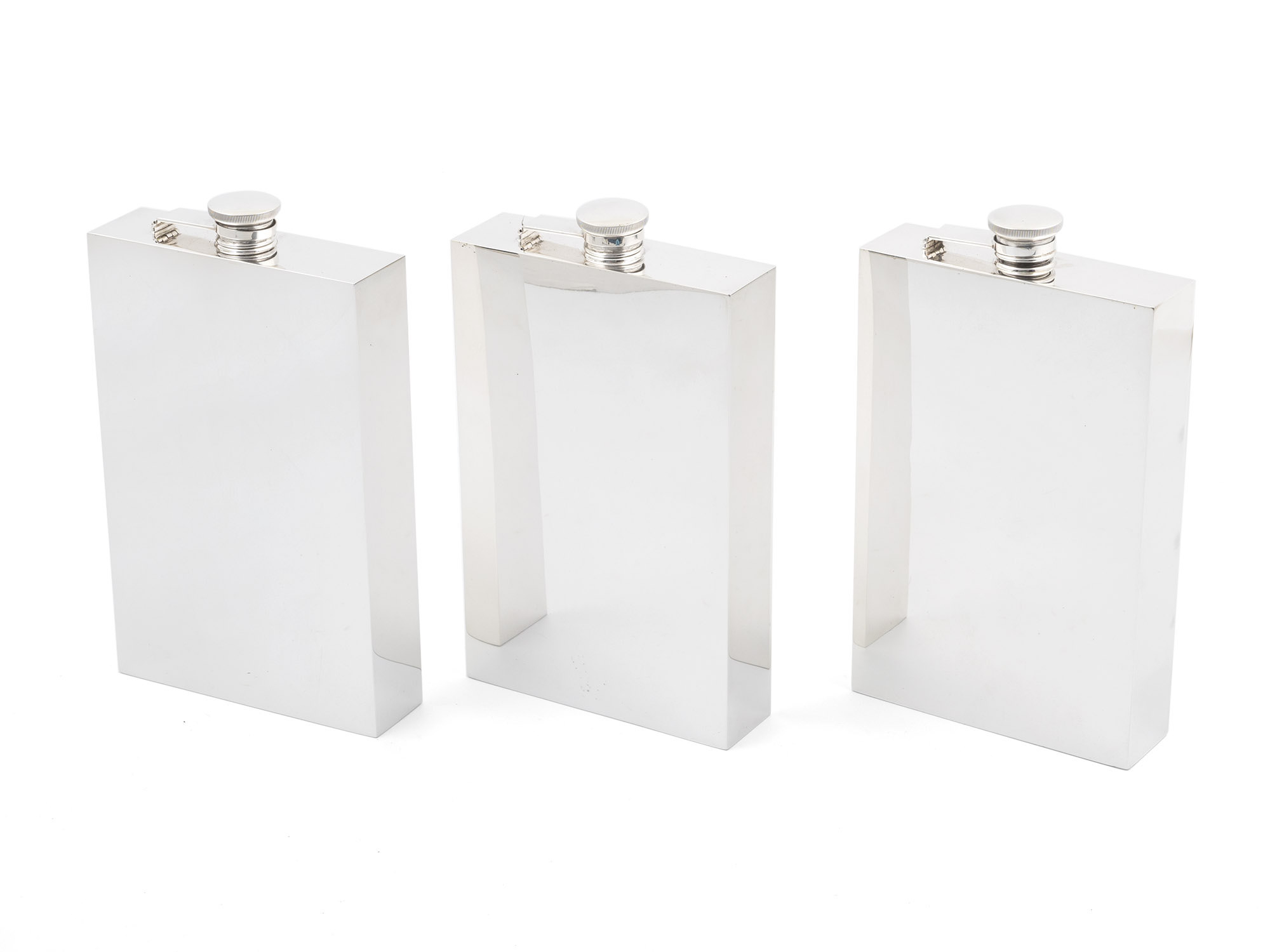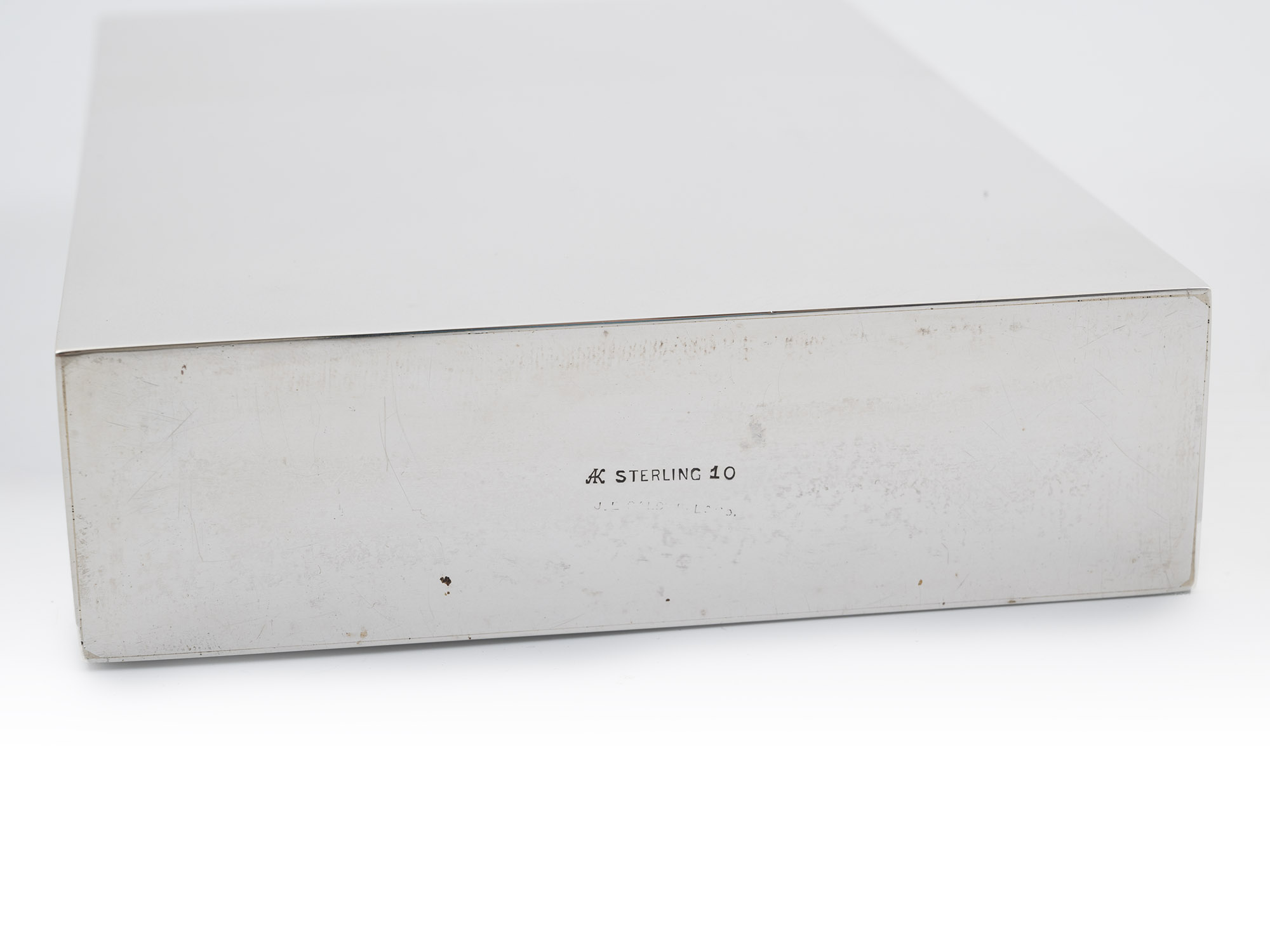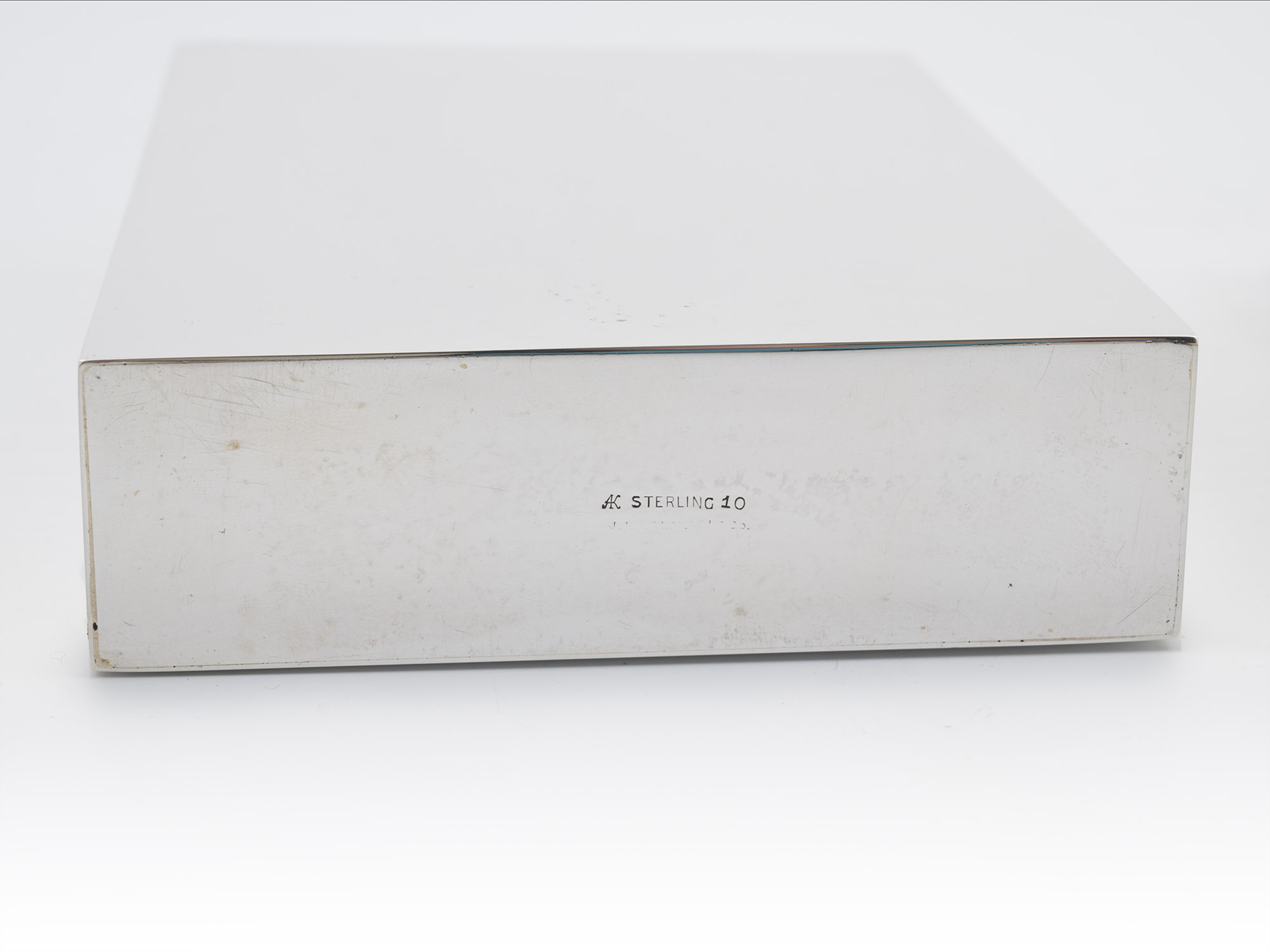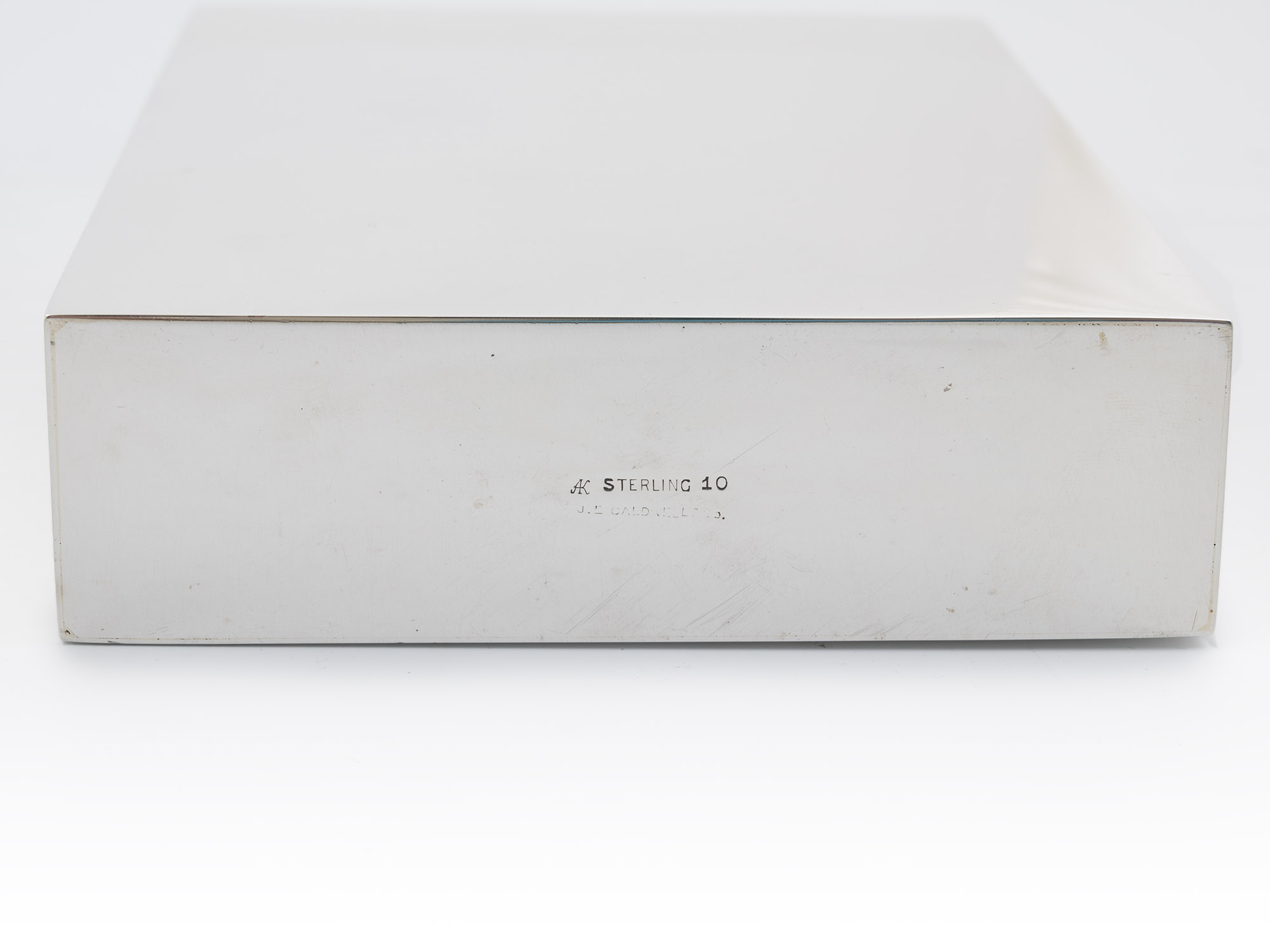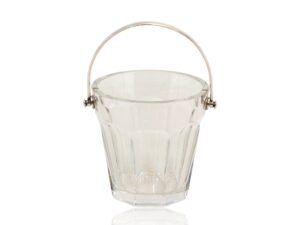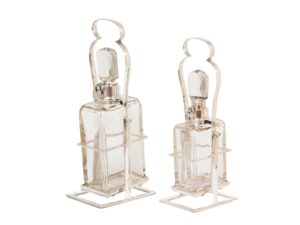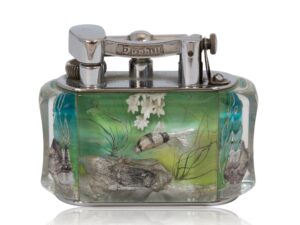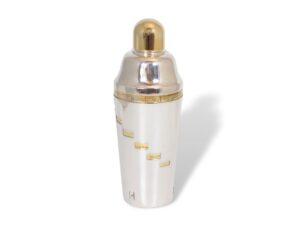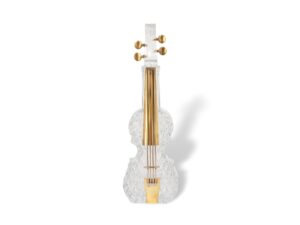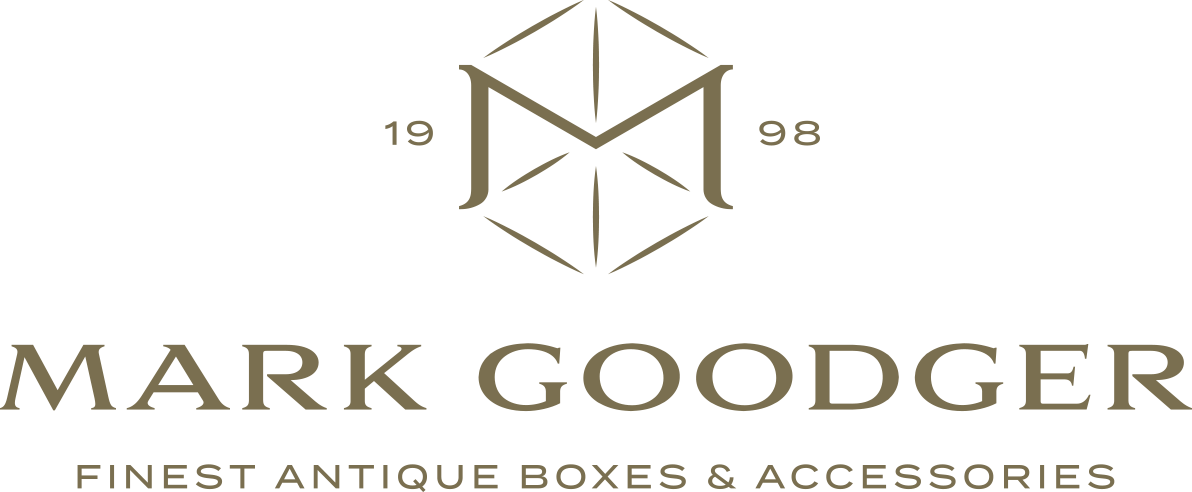Prohibition Bootleggers Briefcase with Silver Flasks
SOLD
Rare 1920's Prohibition-era bootlegger's briefcase containing three large solid silver flasks by J.E. Caldwell & Co. Brown leather bootleggers Briefcase with two locking clasps to help keep its special contents secure and from prying eyes. Opening this wonderful bootleggers leather... Read More
| Dimensions | 42 × 5 × 24 cm |
|---|---|
| Country | |
| Medium | |
| Year | |
| Condition | Slight wear to the case all in keeping with its age, flasks have one or two marks & dings. |
| Period | |
| SKU | 500996-CCXE |
Description
Description
Rare 1920’s Prohibition-era bootlegger’s briefcase containing three large solid silver flasks by J.E. Caldwell & Co.
Brown leather bootleggers Briefcase with two locking clasps to help keep its special contents secure and from prying eyes. Opening this wonderful bootleggers leather briefcase reveals three giant solid Silver Flasks with special hinged screw-topped lids, each one carefully housed in three padded compartments. Each Flask is marked on the base by famous American Jeweler/silversmiths of Philadelphia J.E Caldwell & Co.
This wonderful rare leather briefcase was among items made for bootleggers in the 1920s due to the prohibition and the ban, disguised as a slim briefcase for the office carried by a very well-dressed Gent or Lady off to work in the city, who would question it? Very rare to find and very sought after too. This one in particular must have been specially made and belonged to someone who was very high up in the industry at bootlegging given its solid silver contents. Could this of belonged to the Mafia, King of Bootleggers in the 1920s, if only it could talk, what tales and stories it could reveal?
All our items come with an authentication certificate with an image, care instructions and a separate invoice for insurance purposes. On top of this, our items come with a 14-day no-quibble money-back guarantee and are all fully insured for when shipping.
Additional information
Additional information
| Dimensions | 42 × 5 × 24 cm |
|---|---|
| Country | |
| Medium | |
| Year | |
| Condition | Slight wear to the case all in keeping with its age, flasks have one or two marks & dings. |
| Period | |
| SKU | 500996-CCXE |
